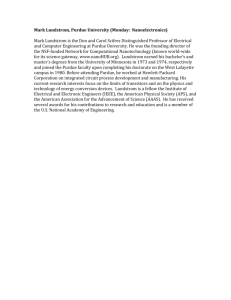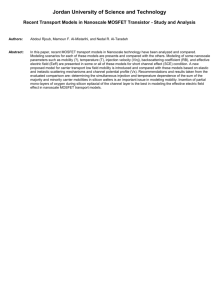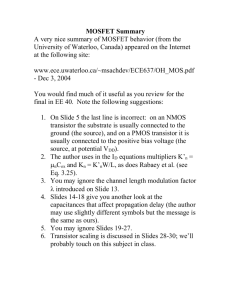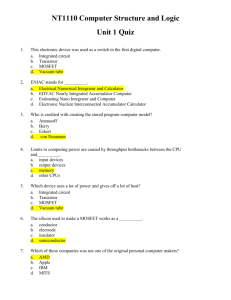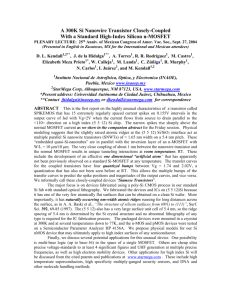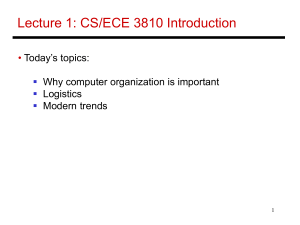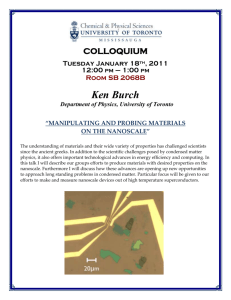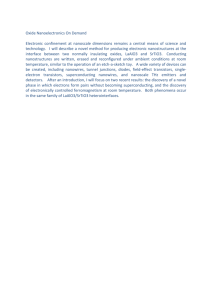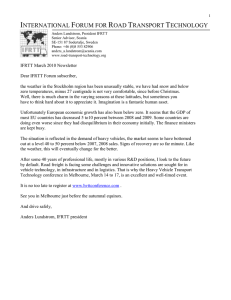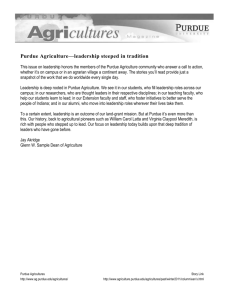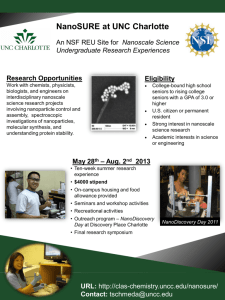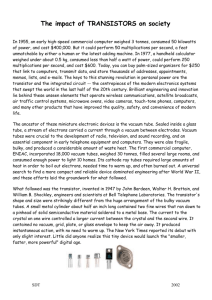flyer
advertisement
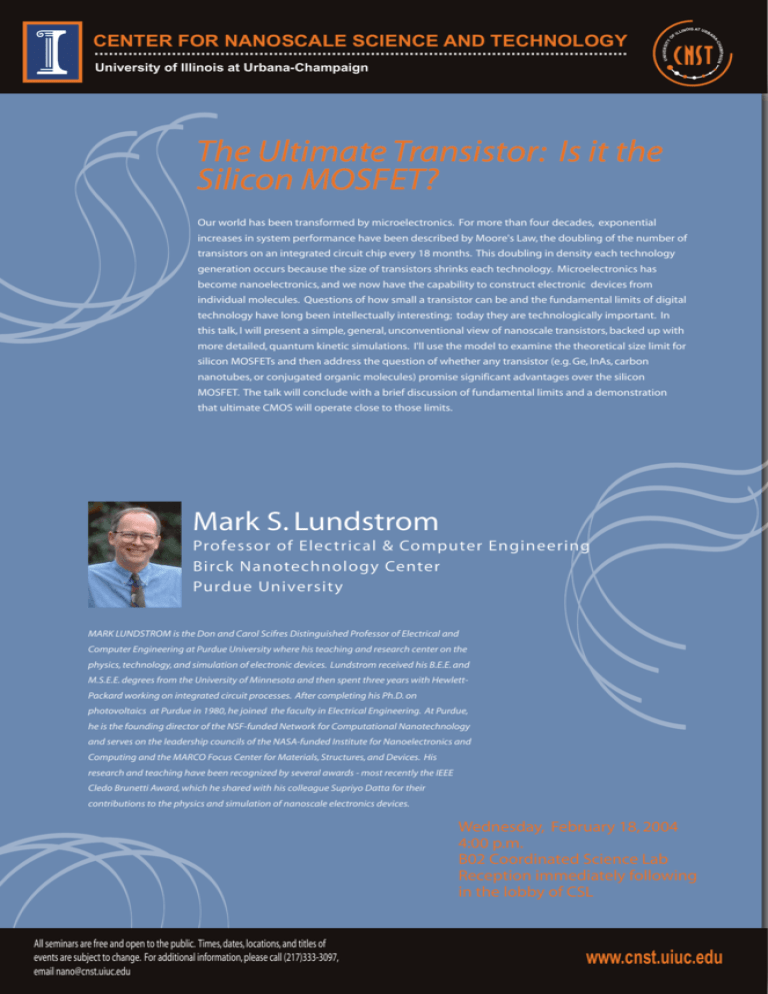
University of Illinois at Urbana-Champaign O S AT U INOI RB UNIVERSITY .............................................................................................................. ILL A AMPAIGN -CH NA CENTER FOR NANOSCALE SCIENCE AND TECHNOLOGY F The Ultimate Transistor: Is it the Silicon MOSFET? Our world has been transformed by microelectronics. For more than four decades, exponential increases in system performance have been described by Moore's Law, the doubling of the number of transistors on an integrated circuit chip every 18 months. This doubling in density each technology generation occurs because the size of transistors shrinks each technology. Microelectronics has become nanoelectronics, and we now have the capability to construct electronic devices from individual molecules. Questions of how small a transistor can be and the fundamental limits of digital technology have long been intellectually interesting; today they are technologically important. In this talk, I will present a simple, general, unconventional view of nanoscale transistors, backed up with more detailed, quantum kinetic simulations. I'll use the model to examine the theoretical size limit for silicon MOSFETs and then address the question of whether any transistor (e.g. Ge, InAs, carbon nanotubes, or conjugated organic molecules) promise significant advantages over the silicon MOSFET. The talk will conclude with a brief discussion of fundamental limits and a demonstration that ultimate CMOS will operate close to those limits. Mark S. Lundstrom Professor of Electrical & Computer Engineering Birck Nanotechnology Center Purdue University MARK LUNDSTROM is the Don and Carol Scifres Distinguished Professor of Electrical and Computer Engineering at Purdue University where his teaching and research center on the physics, technology, and simulation of electronic devices. Lundstrom received his B.E.E. and M.S.E.E. degrees from the University of Minnesota and then spent three years with HewlettPackard working on integrated circuit processes. After completing his Ph.D. on photovoltaics at Purdue in 1980, he joined the faculty in Electrical Engineering. At Purdue, he is the founding director of the NSF-funded Network for Computational Nanotechnology and serves on the leadership councils of the NASA-funded Institute for Nanoelectronics and Computing and the MARCO Focus Center for Materials, Structures, and Devices. His research and teaching have been recognized by several awards - most recently the IEEE Cledo Brunetti Award, which he shared with his colleague Supriyo Datta for their contributions to the physics and simulation of nanoscale electronics devices. Wednesday, February 18, 2004 4:00 p.m. B02 Coordinated Science Lab Reception immediately following in the lobby of CSL All seminars are free and open to the public. Times, dates, locations, and titles of events are subject to change. For additional information, please call (217)333-3097, email nano@cnst.uiuc.edu www.cnst.uiuc.edu
